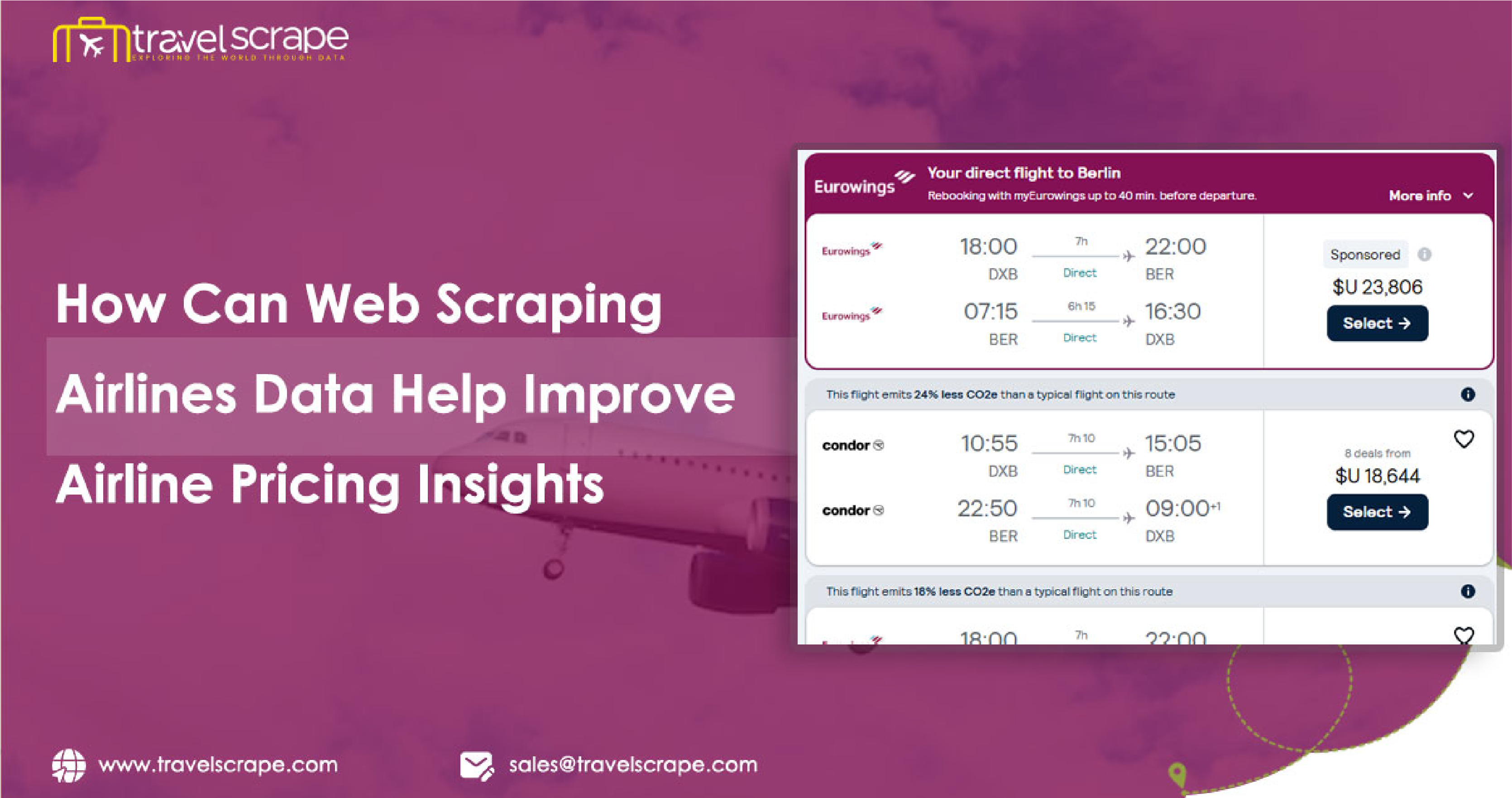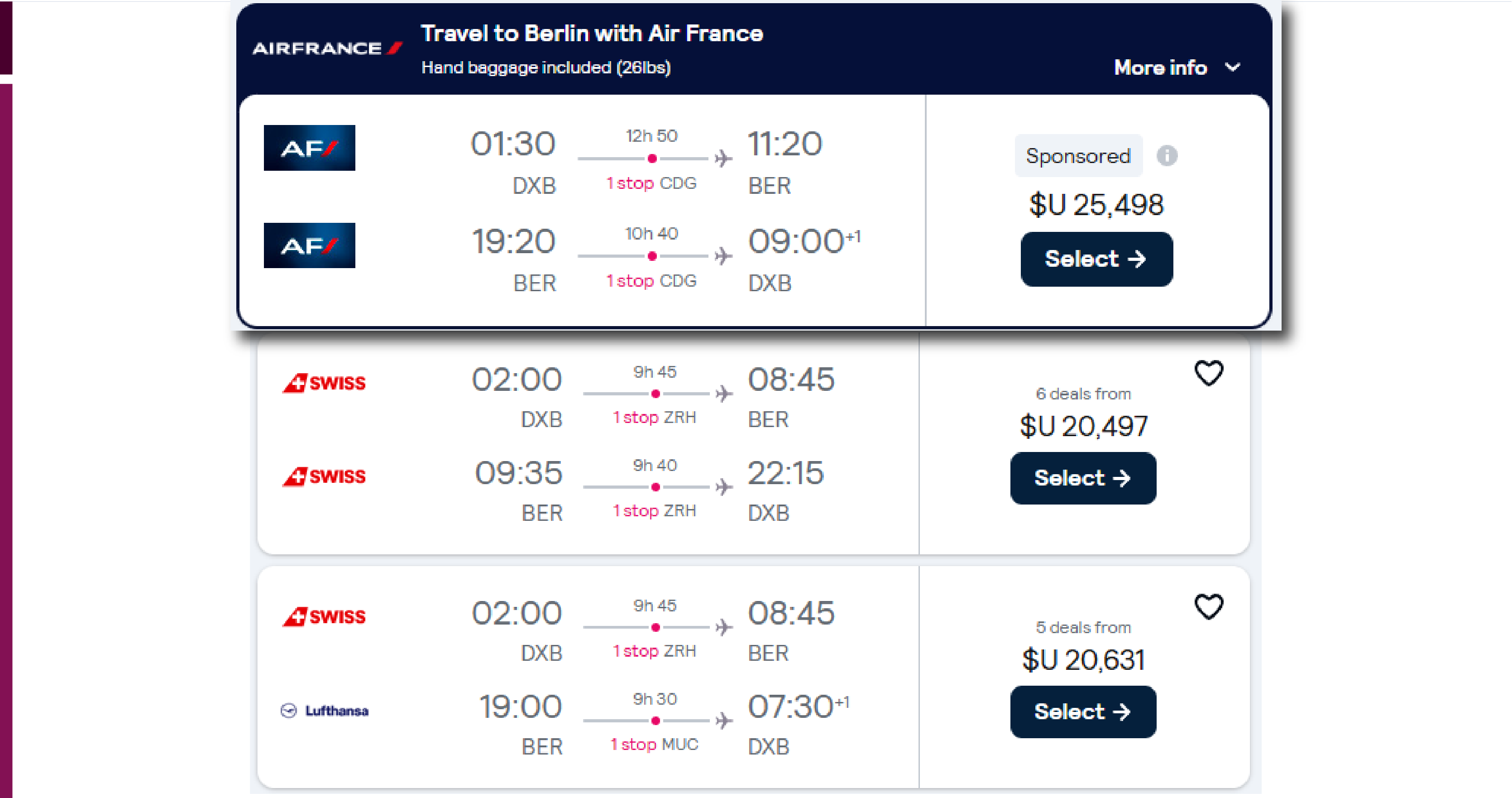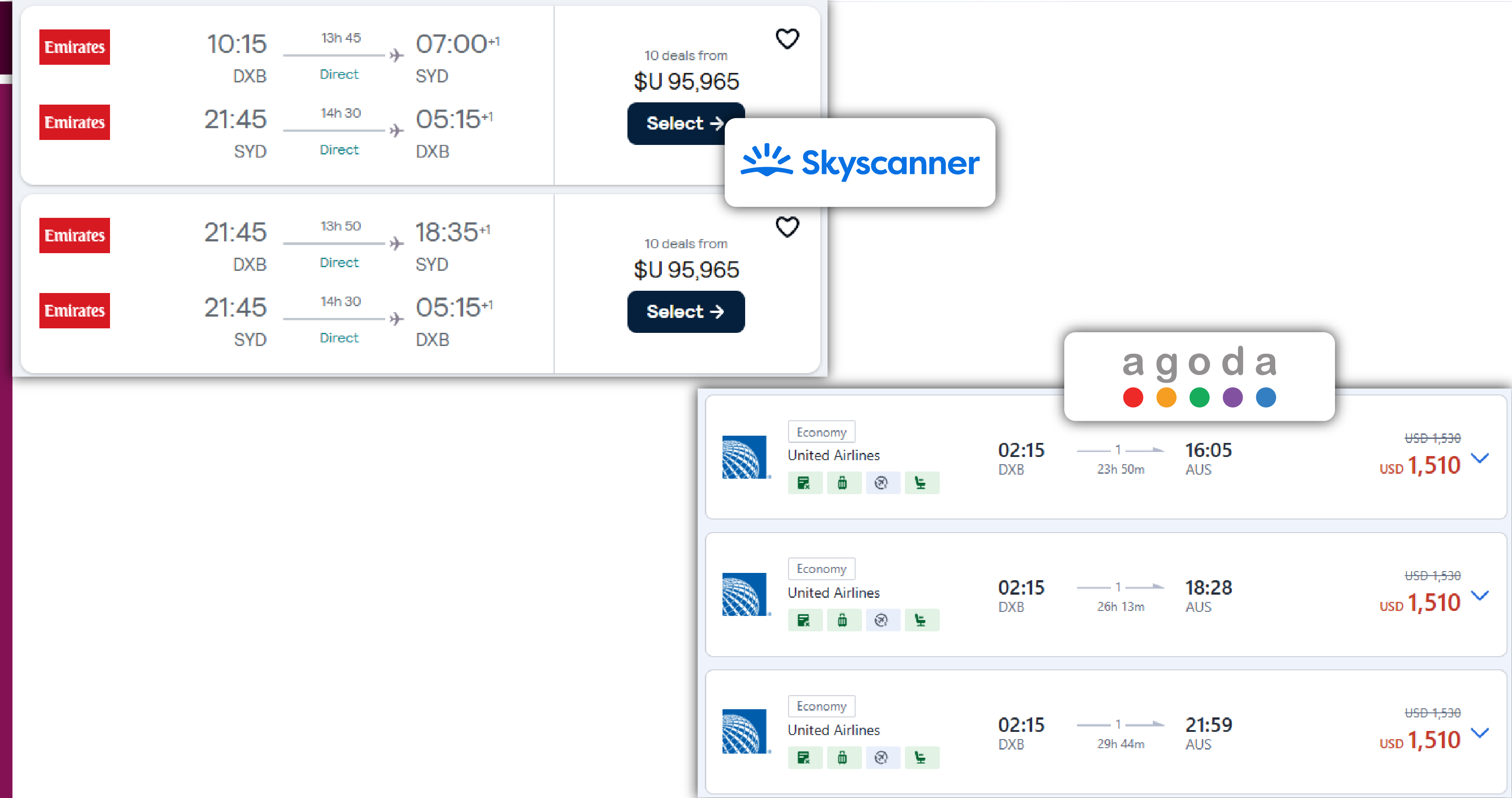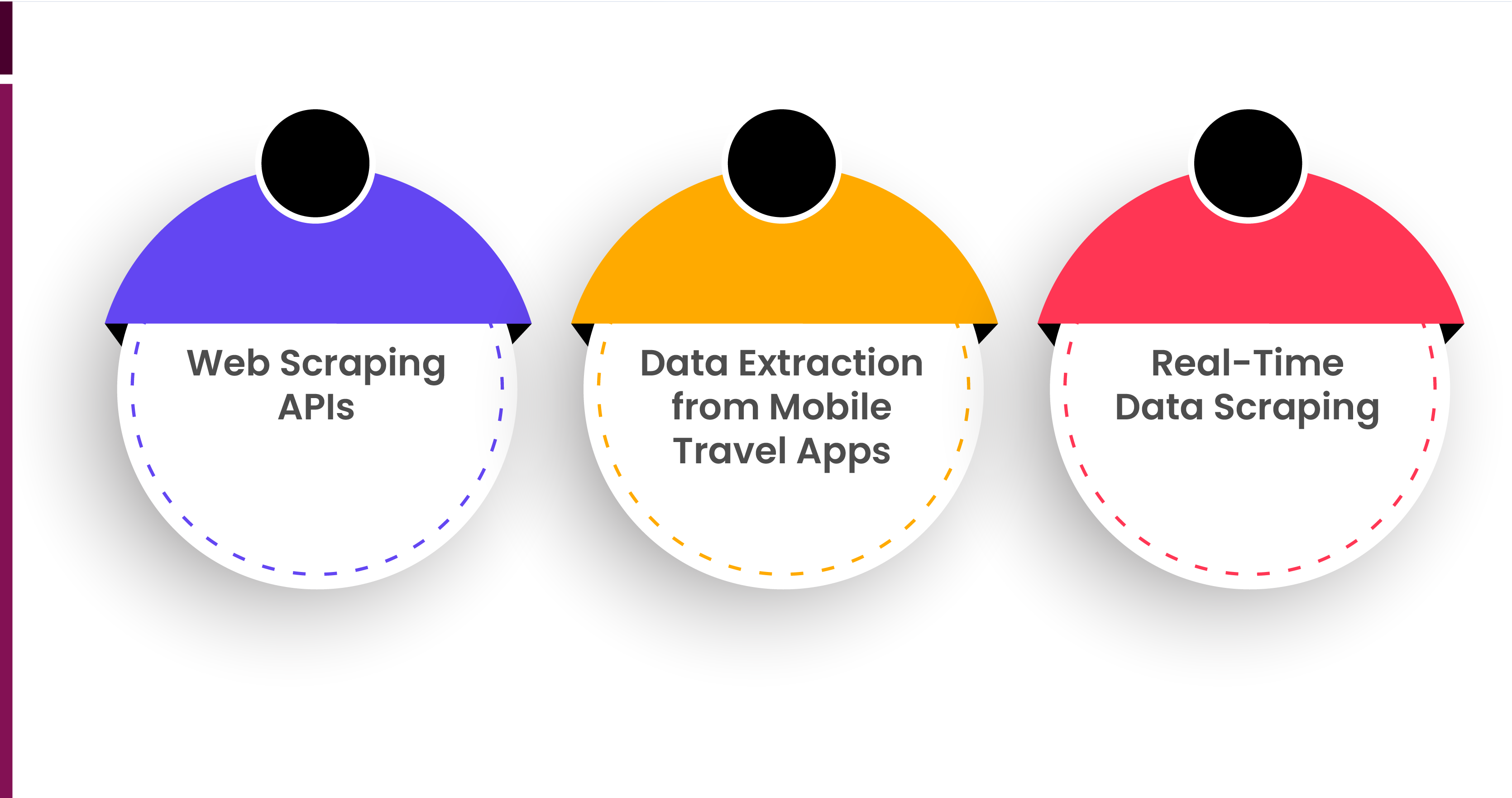How Can Web Scraping Airlines Data Help Improve Airline Pricing Insights?

Introduction
The airline industry operates in a highly competitive and dynamic environment where pricing strategies play a critical role in determining profitability. For airlines to maintain a competitive edge, they need to have access to accurate, up-to-date information about market trends, competitor pricing, and customer demand. Web Scraping Airlines Data provides a powerful solution to this challenge, offering real-time insights that help airlines optimize their pricing strategies.
In this blog, we will explore how web scraping techniques for airline price monitoring can help airlines improve their pricing insights. We will discuss the role of real-time data scrapers, dynamic pricing strategies, and how airline data scraping can contribute to better decision-making. Additionally, we will cover the various ways airlines can leverage web data extraction to enhance fare management and airline pricing.
Understanding Web Scraping and Its Role in Airline Pricing

Web scraping refers to the process of extracting data from websites using automated tools or scripts. In the context of the airline industry, web scraping airlines data involves collecting flight pricing, availability, and other relevant data from multiple sources, including competitor websites, travel agencies, and booking platforms. This data can then be analyzed to reveal trends, customer preferences, and competitive pricing strategies.
Airlines that leverage real-time airline data scraping can keep a close eye on the constantly fluctuating market conditions and adjust their pricing in real time. This capability is crucial for implementing dynamic pricing strategies, where prices are adjusted based on market demand, time of booking, and competitor pricing.
Benefits of Web Scraping Airlines Data for Pricing Insights

1. Competitive Pricing and Market Intelligence
In the airline industry, competition is fierce. Airlines need to stay competitive by offering attractive prices while maximizing their profitability. Airline data scraping for dynamic pricing strategies helps airlines track competitor pricing in real time, enabling them to adjust their fares accordingly.
For example, if a competitor airline reduces its ticket prices for a specific route, airlines using web scraping techniques can instantly be aware of this change and respond by adjusting their prices to stay competitive. This level of real-time insight is key to ensuring that airlines don’t lose market share due to pricing mismatches.
Use Case:
Imagine an airline competing on a popular route that has seen a sudden drop in prices from a competitor. By using web scraping airlines data, the airline can monitor these price changes and adjust its fares to remain competitive, ensuring it captures a share of the demand while maximizing its revenue.
2. Real-Time Pricing Adjustments
Airline prices are highly sensitive to changes in demand, time of booking, and seasonality. Extracting airline data for better pricing insights allows airlines to monitor fluctuations in price and demand, enabling them to make real-time adjustments to their pricing strategies.
With real-time airline data scraping, airlines can track how prices change throughout the day, week, or month, based on demand patterns, and adjust their prices dynamically. This can help airlines optimize their revenue by charging higher prices during peak demand periods and offering discounts during low-demand times.
Real-Life Example:
During peak travel seasons such as holidays or school vacation times, airlines can use real-time data scraping to monitor demand on specific routes. By adjusting their prices based on real-time data, airlines can maximize revenue during these high-demand periods.
3. Enhanced Fare Management
Airline fare management with web data extraction involves collecting, analyzing, and optimizing pricing data to ensure that airlines offer the best possible fares for each customer segment. Extract flight price data across multiple channels, including online travel agencies (OTAs) and competitor websites, allows airlines to gauge the market and make data-driven decisions.
With web scraping airlines data, airlines can also detect fare inconsistencies across different platforms, ensuring they maintain consistent pricing across all channels. This also helps prevent underpricing or overpricing, which could impact the airline’s revenue and customer satisfaction.
Use Case:
An airline may find that its prices are higher on its website compared to third-party travel websites. By using airline pricing with real-time data scrapers, the airline can make pricing adjustments in real time to align with competitor prices and avoid losing customers to lower-priced options.
4. Demand Forecasting and Trend Analysis
Pricing isn’t just about reacting to changes in competitor prices; it’s also about predicting future demand. Web scraping allows airlines to collect historical data and apply analytical models to forecast future trends. By extracting airline data for better insights, airlines can predict which routes will experience high demand, enabling them to set optimal prices in advance.
For instance, by analyzing travel data scraping API results, airlines can identify which routes are likely to see increased demand during specific times of the year, such as during major events or holidays. This allows them to optimize their pricing strategy well ahead of time, ensuring they maximize revenue when demand peaks.
Use Case:
Airlines can anticipate an increase in demand for flights to a specific destination due to an upcoming festival or event. By analyzing past trends through web scraping, airlines can prepare for demand spikes by setting higher prices or offering early-bird discounts.
5. Customer Segmentation and Personalized Pricing
Web scraping techniques also enable airlines to gain deeper insights into customer preferences and behaviors. By collecting data from travel aggregators, airlines can segment their customers based on factors such as travel frequency, booking behavior, and price sensitivity. This allows airlines to personalize their pricing strategies, offering targeted discounts or premium prices to different customer groups.
Real-Life Example:
An airline may identify that frequent business travelers tend to book flights closer to the departure date and are willing to pay higher fares. By using travel industry web scraping, the airline can create personalized pricing packages for this segment, offering premium fares for last-minute bookings while offering discounts for advance bookings to leisure travelers.
Web Scraping Techniques for Airline Price Monitoring

To effectively extract and analyze airline pricing data, it’s essential to use the right web scraping techniques for airline price monitoring. These techniques involve using automated bots or APIs to collect data from various airline websites, booking platforms, and travel aggregators.
1. Web Scraping APIs
A Travel Data Scraping API is one of the most efficient ways to collect airline pricing data. These APIs are specifically designed to extract flight price data, availability, and other relevant information from airline websites, travel agencies, and OTAs.
2. Data Extraction from Mobile Travel Apps
Airlines can also scrape mobile travel app data to monitor pricing trends across different platforms. Many customers prefer booking flights through mobile apps, and collecting this data can help airlines stay updated with the latest price changes.
3. Real-Time Data Scraping
To monitor price fluctuations as they happen, real-time data scraping is essential. This technique allows airlines to track pricing changes minute by minute, giving them the ability to respond to market shifts quickly.
Conclusion
In the airline industry, web scraping airlines data is not just a tool for monitoring prices – it is a strategic advantage that allows airlines to stay competitive, optimize their pricing strategies, and improve their bottom line. Through dynamic pricing strategies, real-time data scraping, and fare management using web data extraction, airlines can improve customer satisfaction and increase revenue.
At Travel Scrape, we specialize in providing comprehensive travel, airline, and hoteldata extraction solutions. Our travel aggregators and mobile app scraping services ensure that your business stays ahead of the competition with real-time insights and optimized pricing strategies. Contact us today to learn how we can help you Scrape Mobile Travel App Data for better pricing insights and enhanced profitability.